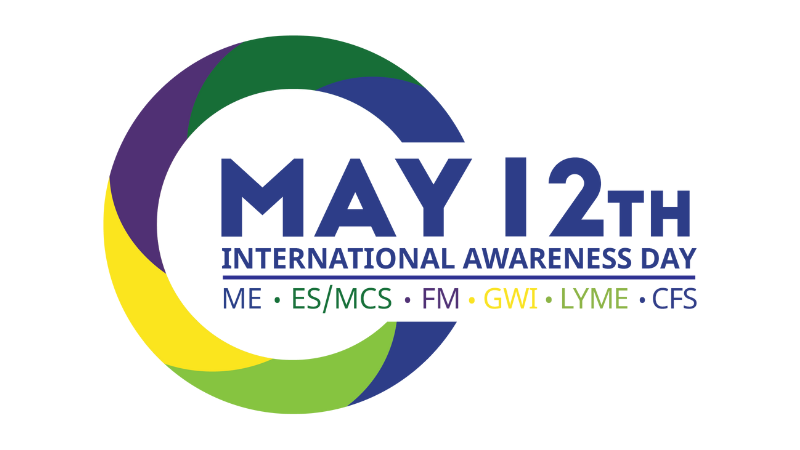This article has been adapted, with permission, from a corresponding article by Kelsey Kloss on the CreakyJoints US website. Some content may have been changed to suit our Australian audience.
Your friend insists you join her at an indoor concert for her birthday. Your sister brings over her sniffling kiddos unannounced. Your coworkers refuse to wear a mask when they step into your cubicle.
As an immunocompromised person, you know you need to set boundaries in these scenarios to protect yourself. After all, a bout of COVID-19 or flu could put you in a high-risk situation.
However, it’s easier said than done. Just don’t worry about what people think, you’ve been told. But if you’re a people pleaser, when the moment comes to say no, you may find yourself saying “okay, sure” before you can stop yourself. Then, the guilt and regret sets in.
“It’s important for immunocompromised patients to learn to set boundaries because it can be a matter of life or death,” says Samoon Ahmad, MD, Clinical Professor of Psychiatry at NYU Grossman School of Medicine. “For those who struggle to draw the line in the sand, it’s important to put the decision in the starkest terms: Are you willing to potentially fall gravely ill just to avoid upsetting someone?”
If you have trouble setting boundaries, here’s what you need to know to shift your mindset — and keep yourself healthy.
Recognize What Makes You Prone to People-Pleasing
There may be several reasons you find yourself catering to others’ requests, even if it puts you in harm’s way.
“People pleasers tend to feel guilty or as though they are disappointing others when they say ‘no’ or set firm boundaries,” says Dr Ahmad.
This can take a few different forms: For instance, within a professional setting, you may have a fear of reprisal for not “taking one for the team.” Or within social settings, you might feel that setting boundaries with a friend or family member may hurt your relationships.
Generally, people who are fearful of abandonment have difficulties setting boundaries, which could be connected to low self-esteem. However, there may also be a number of reasons that, as an immunocompromised person, you don’t want to push back against certain requests.
“The most common reason is because immunocompromised individuals, especially those who have recently developed a condition, don’t want to seem fragile,” says Dr Ahmad. “On one hand, they want to be free to live how they please without constantly thinking about their illness. On the other, they don’t want others to avoid asking them to participate in social or professional events because of a perceived inability to do so.”
Similarly, you may struggle to set boundaries with others because you don’t want to be defined by limitations.
In any case, you’re not alone if you’re a people pleaser: In a 2022 poll from YouGov, a market research and data analytics firm, researchers surveyed 1,000 American adults and found that about half (49 per cent) would self-identify as people pleasers. Nearly 15 per cent said they “definitely would.”
Women (56 per cent) were more likely than men (42 per cent) to describe themselves as people pleasers. In fact, 70 per cent of women say they often go to great lengths to avoid conflict and 68 per cent say they often put other people’s needs first at the expense of their own.
About half of Americans (52 per cent) say they often feel like they can’t say no when someone asks them for something. Women are more likely (55 per cent) to experience this than men (49 per cent).
No matter why you find yourself with people-pleasing tendencies, the important thing is that you recognize the habit so that you can reframe your thought processes and pinpoint strategies to better advocate for yourself.
Get Clear on Your Non-Negotiables
You won’t say no to everything, but you need to determine what is always a no-go for you, based on its risk level.
“Keep a list of your non-negotiables,” says Kim Gorgens, PhD, Clinical Professor and Director of Continuing Education at the Graduate School of Professional Psychology at the University of Denver. “Once you get clear on that, perhaps you give yourself less of a hard time for offering concessions that aren’t on your ‘hard no’ list.”
For instance, maybe you know that crowded movie theatres are on your non-negotiable list, but you’re open to inviting one or two friends over for a movie night. What feels comfortable and safe will be unique to you (and you should also consult your doctor, who can help you gauge your risk level based on your immunocompromised status).
In general, factors that lower or increase the risk of COVID-19 transmission include the following, per the US Centers for Disease Control and Prevention:
- Length of time: Contact time longer than 15 minutes (say, sitting next to an infected individual at a concert) is more likely to result in transmission than, say, two minutes.
- Coughing or heavy breathing: Activities like coughing, singing, shouting or breathing heavily from exercise increase the risk of transmission.
- Mask status: If both the infected person and another person are masked, the risk is substantially decreased. It’s highest, of course, when nobody is masked.
- Ventilation: Poorly ventilated indoor spaces pose a higher risk than well-ventilated spaces (moderate risk) or being outdoors (lower risk).
Once you have your list of non-negotiables, you won’t be faced with a decision you have to make on the spot when someone pushes you to do a high-risk activity. Instead, you’ll already have decided that it’s on your non-negotiable list — and it’ll be that much easier to say “no.”
Practice What You’ll Say
If you find yourself freezing up when it’s time to set boundaries, you need to practice first. It may feel a little goofy practicing a conversation with your houseplants, dog or even a trusted friend who can provide feedback, but simply stating your boundaries out loud will give you more confidence when it’s time to communicate them to someone else.
“It really is as simple as feeling like you know what you set out to do and you already practiced a script, so you can do it when you need to,” says Dr Gorgens. “You might think, ‘That didn’t hurt as much as I thought it would,’ and after that, it’s a little easier each time.”
Consider who in your life you need to set boundaries with and decide who you’ll start with.
“You might feel prepared to jump in head-first with your thorniest coworker or family member, or you might need a sloping, gentle approach that builds confidence as you get your script perfected,” says Dr Gorgens. “I think both approaches lead to the same outcome. If one of those two things make you feel more comfortable, that means that’s the right approach.”
Practice How You’ll Say It
First, recognize if you’re prone to over-explaining and stop yourself in advance.
“In our minds, we feel like we need to explain or offer concessions or relinquish control in a way,” says Dr Gorgens. “But ‘no’ is a complete sentence.”
Of course, in a real-life setting, you may feel like just saying “no” is a little too abrupt or seems inauthentic based on the relationship you have with the person you’re speaking to. In that case, Dr Gorgens recommends practicing other types of short phrases, such as “I don’t feel comfortable going to indoor exercise classes. How about we go for a hike together next weekend instead?”
As you practice, take note of how you speak and the tone of your voice. It’s easy to dilute your message by injecting laughter (known as “laughter padding”) or a questioning tone into your message.
“This is especially visceral for people who identify as women, who have adapted a social role of having a natural way of discrediting our power and control in the world,” says Dr Gorgens. “If you’re laughing or you add a lot of levity or you add a question mark after saying ‘no,’ your message gets diluted. This is where practice is so key.”
When you’re nervous, you tend to rely on habits, which may include laughter padding. But the more you practice, the more prepared you are to avoid that.
In particular, if you practice with an honest friend, they may give you feedback like, “Hey, that was great, but I noticed that you’re laughing throughout it — which makes me take your boundaries less seriously.”
Set Boundaries Early On
The most difficult people to set boundaries with in your life will be those you have existing relationships with. The easiest way to set boundaries is to establish them early on within a relationship and to stick to them.
“Setting new boundaries in existing relationships can be more difficult,” says Dr Ahmad. “However, when circumstances change — in this case, when an individual comes to realize that they have a condition that makes them immunocompromised and more vulnerable to severe illness — the way in which one behaves needs to change.”
Regardless of whether you’re speaking with a new friend, romantic partner, coworker or employer, your boundary-setting will eventually become second nature.
Join the CreakyJoints Australia Community
Becoming a CreakyJoints Australia member takes just a few minutes. You’ll receive our members’ e-newsletter featuring:
- Reliable information about arthritis types and treatments.
- Tips for managing daily life with arthritis and related conditions.
- Personal stories from people living with similar conditions to you.
- Links to our podcasts featuring interviews with health clinicians and patients.
- Surveys to help us discover what’s important to you.
Keep Reading
Interview with Samoon Ahmad, MD, clinical professor of psychiatry at NYU Grossman School of Medicine
Interview with Kim Gorgens, PhD, Clinical Professor and Director of Continuing Education at the Graduate School of Professional Psychology at the University of Denver
Understanding Exposure Risks. COVID-19. U.S. Centers for Disease Control and Prevention. August 11, 2022. https://www.cdc.gov/coronavirus/2019-ncov/your-health/risks-exposure.html.
Women are more likely than men to say they’re a people-pleaser, and many dislike being seen as one. YouGov. August 22, 2022. https://today.yougov.com/topics/society/articles-reports/2022/08/22/women-more-likely-men-people-pleasing-poll.





